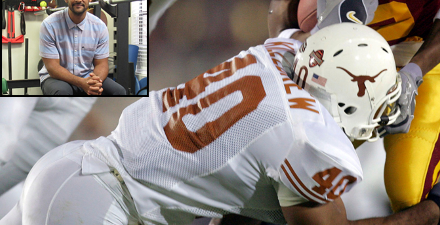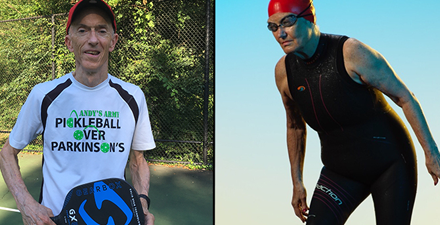Every year on Patriots' Day, the third Monday of April, Bostonians gather for one of their city's most celebrated events, the Boston Marathon. On April 15, 2013, when two bombs exploded on Boylston Street near the finish line, the 117th Boston Marathon turned from a much celebrated sporting event to a horrific scene of chaos and terror. As a result, three people were killed and more than 260 were injured.
In this three-part Move Forward Radio series, we speak with four physical therapists who describe what the road to recovery looks like for the bombing victims, or anyone who has suffered similar injuries.
Part 1 - A View From Boylston Street
Download the podcast on iTunes or listen below:

Dave Nolan, PT, DPT, MS, OCS, CSCS, is a clinical specialist in the sports therapy department at Massachusetts General Hospital and clinical leader of the running program at the hospital's Sports Performance Center. He also coordinates the physical therapy care at the finish line of the Boston Marathon. He was on-site when the bombs exploded, and provided care to many of the victims. In this interview, Nolan describes how medical staff worked together to treat the victims on the scene and shares his optimism for their recovery.
Part 2 - Caring for Patients With Burns
Download the podcast on iTunes or listen below:
Bill Waddell, PT, MS, and Bob Dorman, PT, GCS, are physical therapists at Massachusetts General Hospital and have been working first-hand with many of the victims of the bombing, many who suffered burns as a result of the bombs. In this interview, they provide insight of what it's like to recover from a severe burn, and how treatment of burns has evolved over the years.

Bill Waddell, PT, MS, is a senior inpatient physical therapist in the Orthopedic and Burns Service at Massachusetts General Hospital. His experience includes geriatrics and clinical education.

Bob Dorman, PT, GCS, is clinical specialist in the Orthopedic and Burns Service at Massachusetts General Hospital. His experience includes acute care, amputation, fractures, multi-trauma and burns.
Part 3 - Moving Forward After Amputation
Download the podcast on iTunes or listen below:

Ignacio Gaunaurd, PT, PhD, MSPT, is a physical therapist with the Miami Veterans Affairs Healthcare System. He specializes the treatment of people with amputations, specifically veterans. His current research efforts include developing outcome measures, innovative rehabilitation protocols, and virtual educational modules for people with lower limb loss. In this interview he describes what is ahead for individuals looking to move forward after an amputation.


